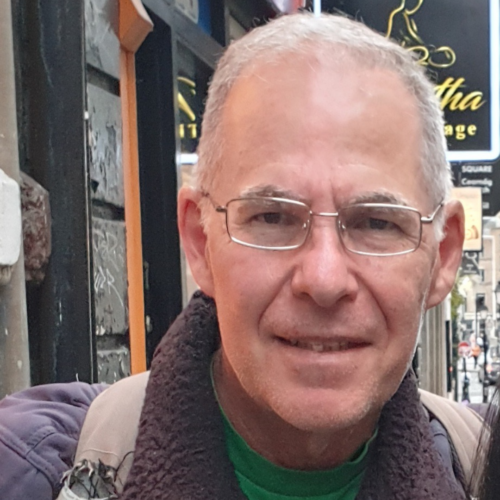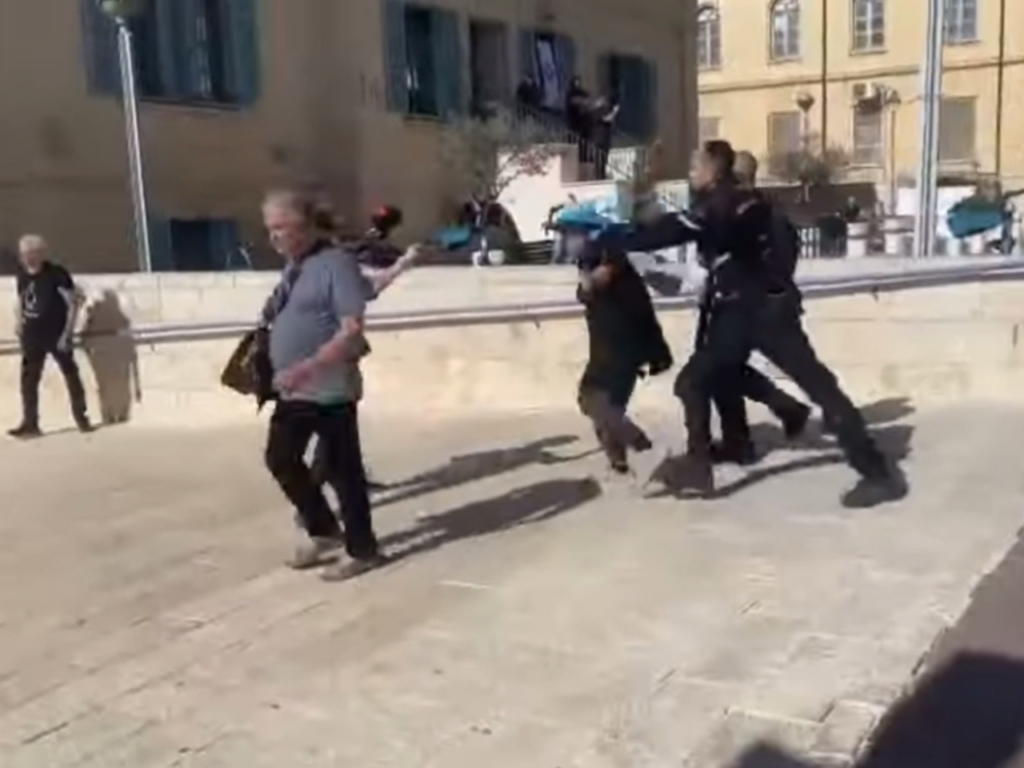Israeli teacher fired and arrested: “I voiced my concerns about innocent lives lost in Gaza, only to face unexpected aggression”
In that gray cell, my world shrank to include only the essentials – clothes, a threadbare towel, and a cigarette-scented blanket. The space seemed designed to unnerve me. To cope, I slept as much as possible, doing push-ups when awoke to distract me from the mental strain. They couldn’t break my spirit. I clung to hope for a brief stay and an eventual return home.
- 2 years ago
January 26, 2024

JERSUSALEM, Israel — On October 7, 2023, on an ordinary Saturday morning, the blare of sirens in Israel jolted me awake, marking the start of a day that would drastically change my life. Expressing my concerns about the loss of innocent lives in Gaza on Facebook, I encountered an onslaught of aggressive messages.
The harsh backlash from the community felt unexpected and unveiled deep social divisions and intense emotions. The online hostility soon translated into real-world consequences, as I experienced a tangible shift in my colleagues’ attitudes toward me at my workplace. As their demeanor changed, our once-familiar camaraderie vanished, leaving me isolated.
The situation escalated with my employer [I worked for the municipality], leading to absurd allegations and my eventual dismissal. The accusations soon led to a police summons, an intense interrogation, and days spent in a cell. This harrowing experience transformed me from a respected teacher to a perceived criminal and tested my resilience. It also strengthened my resolve, reinforcing my commitment to truth and understanding amidst our society’s complex and divided landscape.
Explore more stories on the Israel-Palestine conflict at Orato world media.
A voice for Gaza meets online fury: thousands of hateful messages flooded in
When the sirens echoed throughout the city on October 7, 2023, jolting me awake, I followed the standard protocol and made my way to my shelter. I felt a hint of fear but was not overly alarmed, as this kind of experience remained a routine part of life in Israel.
While I settled in at my shelter, I turned on the television. The news unfolding in Israel shocked me. Despite being in a safe space, the events deeply disturbed me, marking a turning point in my life. Since then, focusing on everyday tasks became increasingly difficult and I went through disruptions in my appetite and sleep patterns.
I began voicing my concerns on Facebook about the innocent lives lost in Gaza, especially women and children. The images of shattered families and homes reduced to rubble weighed heavily on my heart. The response to my posts felt unexpectedly aggressive. Thousands of hateful messages flooded in, some wishing death upon me and my children, and others urging me to move to Gaza.
The level of support for the ongoing violence alarmed me. It felt, to me, like many fellow Israelis crossed a moral boundary, their indifference to civilian casualties in Gaza turning into a callous demand for more.
Returning to my role as a history and civics teacher, I immediately sensed a change in my colleagues’ attitudes. Many avoided me, leaving me isolated in a place that once felt like a community. This isolation became the first tangible impact on my day-to-day life. The situation escalated when the municipality summoned me to a hearing. Facing the educational authorities, their cold demeanor and lack of kindness made it clear they already decided my fate.
Teacher endures baseless accusations and dismissal, leading to four days confined in a cell
During the hearing, they hurled absurd accusations at me, claiming I supported violence against Israeli babies. I remained silent against these baseless allegations. The next day, they confirmed my dismissal from my job as a teacher. Initially I felt unconcerned. After all, other schools showed interest in hiring me in the past, but the situation changed drastically when the Ministry suspended my teaching license.
The following month, I relied on my savings. Then, on November 9, 2023, the police summoned me for sedition. My lawyer advised against testifying without an attorney general’s order. At the station, they confiscated my phone and accused me of treason and disorderly conduct when I refused to testify. The interrogation felt like an assault rather than a series of questions. Despite the pressure, I stayed calm and refused to admit to uncommitted crimes.
They placed me in a small cell and initially I thought it was temporary. However, the judge deemed me a high-risk detainee and imposed strict restrictions. I was to have no outside communication, visitors, personal items, or books. They kept me constantly handcuffed. This experience stood in stark contrast to my life as a respected teacher and transformed me overnight in the eyes of the community from an educator to a criminal. I maintained my resolve, however, and faced the challenges head on in the same way I approached my activism.
In that gray cell, my world shrank to include only the essentials – clothes, a threadbare towel, and a cigarette-scented blanket. The space seemed designed to unnerve me. To cope, I slept as much as possible, doing push-ups when awoke to distract me from the mental strain. They couldn’t break my spirit. I clung to hope for a brief stay and an eventual return home.
Despite my triumph, this experience is a harsh reminder of the deep divisions affecting society
After four long days, the cell door swung open, and I stepped into the daylight, inhaling the air of freedom. A friend greeted me, and we went back to my home together. I braced myself for the aftermath of the police raid, yet the scene still shocked me. The raiders turned my home upside down, scattering personal belongings everywhere in their futile search for evidence of sedition.
Reorganizing my home took an entire month, particularly my workspace. I meticulously sorted everything, restoring order to my life. Powering on my digital devices, they buzzed with weeks of unchecked notifications. Amid the barrage of messages, I noticed one from a former student. She shared her admiration and gratitude, and spoke of the ways I influenced her as a teacher. Her words moved me deeply and brought tears to my eyes.
In court, I triumphed over the municipality and the Ministry of Education. The court ordered them to reinstate my job and compensate me for damages. Every day, I wrestle with the changes in my life and feel uncertain if things will ever normalize entirely. Returning to teaching felt bittersweet. The school had to adhere to the court’s decision and welcome me back, but the atmosphere remained tense. Facing my students pained me as they confronted me with their anger and accusations.
Despite these hurdles, this distressing ordeal only fortified my determination. Reflecting on my career, I see this period as a profound and challenging teaching moment. While I long for peace and the dissolution of groups like Hamas, I recognize our situation’s complexity. Not all Palestinians align with Hamas, just as not all Jews support the views of the ultra-right in power. This experience is a harsh reminder of the misinformation and deep divisions affecting our society.



































































































































































































































































































































































































































































